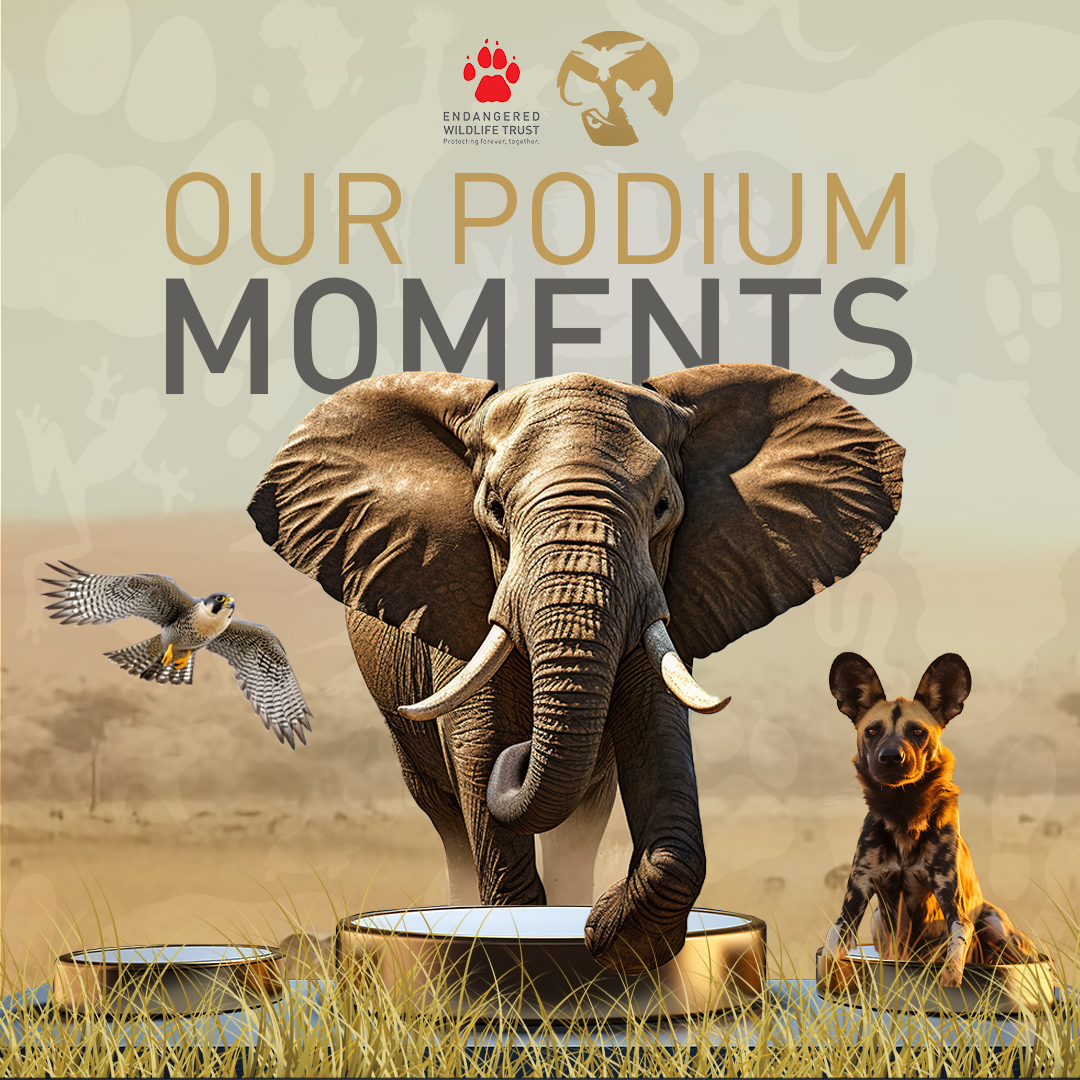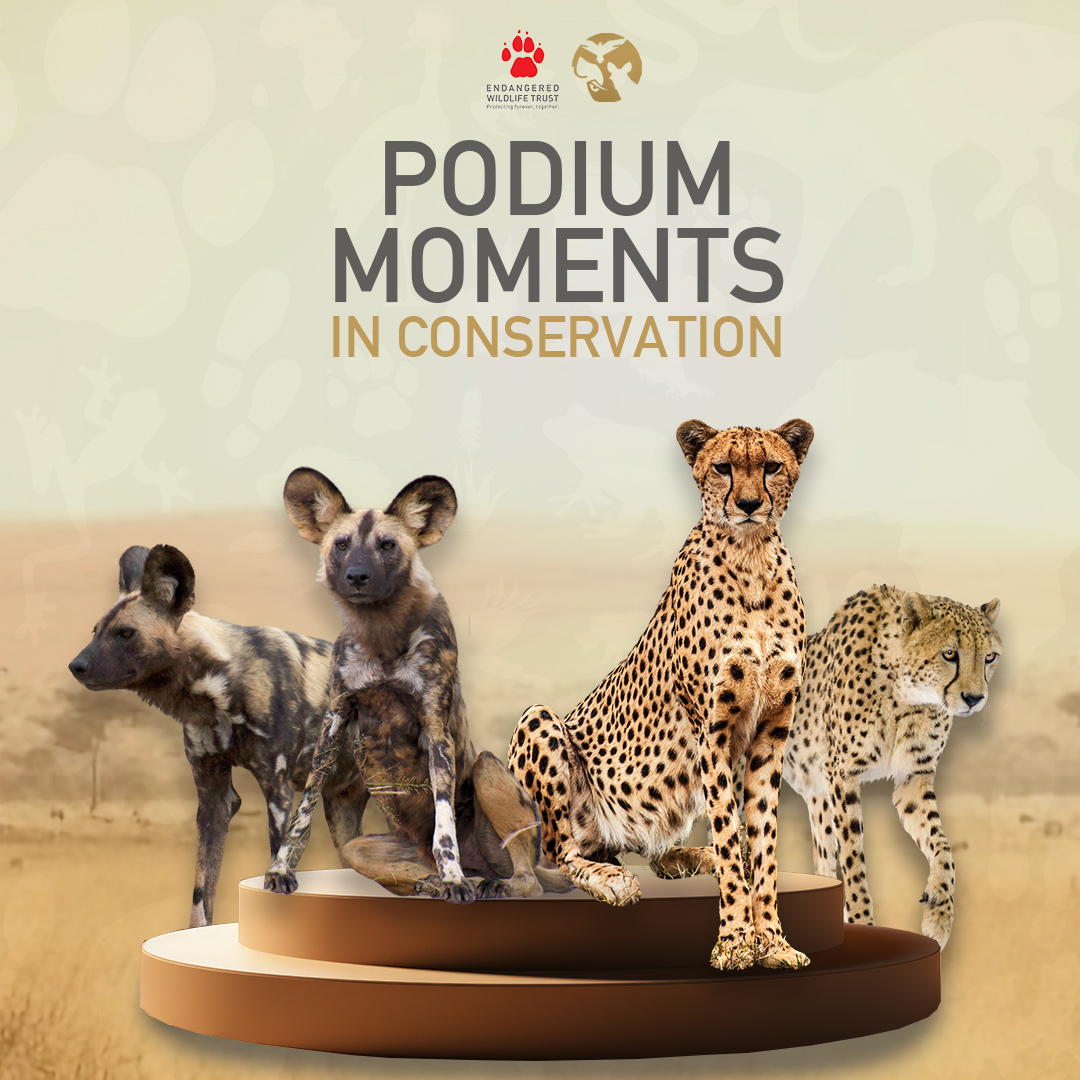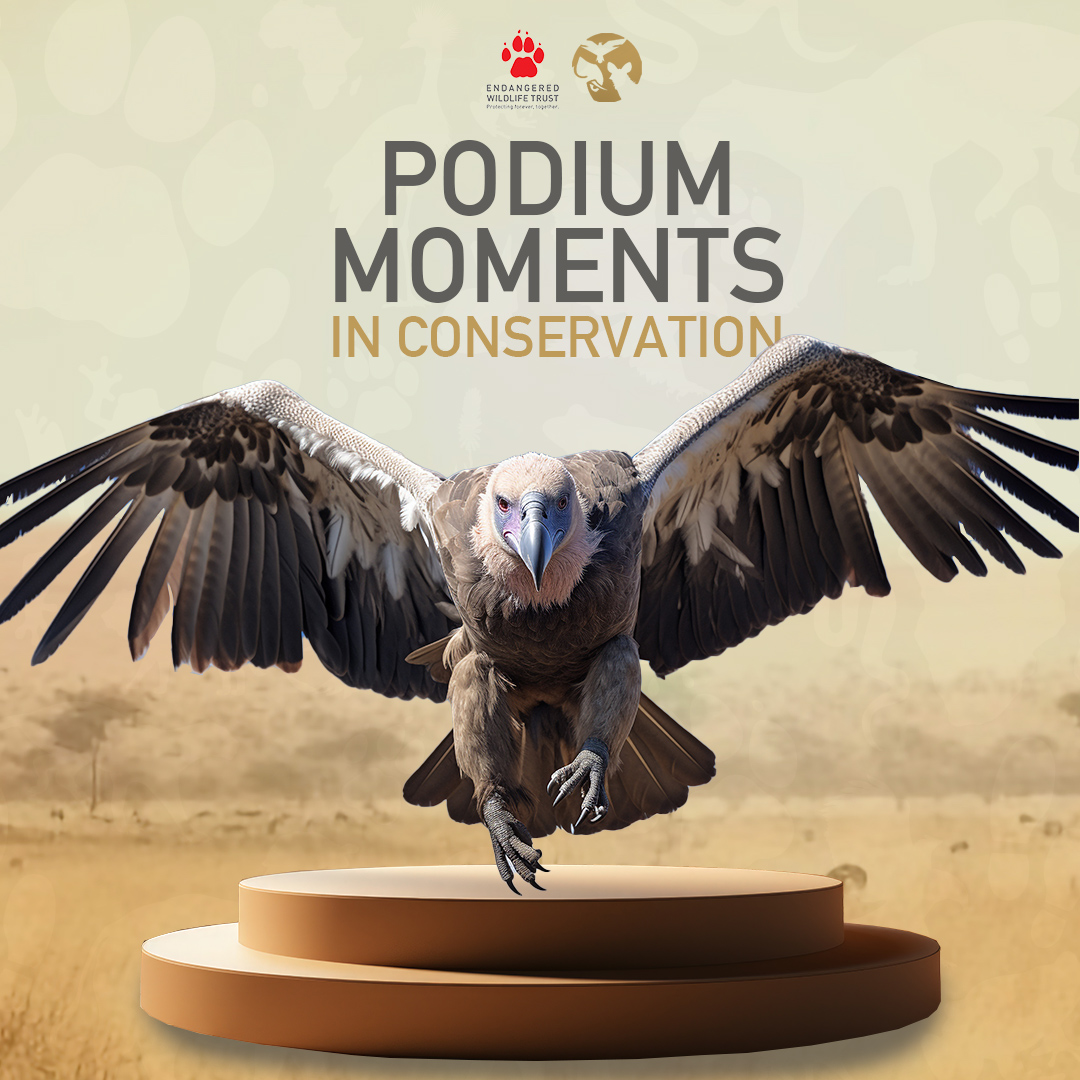oUR PODIUM MOMENTS

Protected podiums and podium moments

Metapopulation Project
The reintroduction of African Wild Dog and Cheetah by the EWT to countries in Africa has contributed successfully to the meta-population initiative to ensure thriving populations of threatened species.
In December, the Cheetah Range Expansion Project recorded a major success with the relocation of three male Cheetah from Malawi to South Africa.
The success also included the introduction of two female Cheetah to Malawi. These translocations are part of a project to ensure the genetic diversity of a species that is listed on Appendix I of the Convention on the International Trade in Endangered Species of Wild Fauna and Flora (CITES). This was the first time since the start of the project to reintroduce
Cheetah populations to neighbouring range states that one of these protected areas has been able to contribute back to the source population in South Africa.
The Cheetah Range Expansion Project (formally the Cheetah Metapopulation Project), launched by the Endangered Wildlife Trust in 2011, aims to increase Cheetah numbers, reduce Cheetah-human conflict and create genetically diverse Cheetah populations while protecting the demographic integrity of these populations. The project’s focus was expanded in 2017 to include other southern African countries and, by working with African Parks to return Cheetah to Liwonde National Park in Malawi. Since then, the Cheetah metapopulation in southern Africa has recovered from only 274 cats in December 2012 to over 400 individuals in 2023.
The introduction of Cheetah to Liwonde National Park marked a return of these special cats to Malawi following their local extinction 20 years before. Since reintroduction, the population has flourished and now sits at 21 individuals. This makes it one of the largest Cheetah populations within the Cheetah metapopulation. Liwonde’s population has done so well that they’ve been able to send Cheetah to help build additional populations in Malawi and Mozambique.
Because managing the demographics and genetics is an ongoing job. That is why in December the EWT brought two new females from South Africa to Liwonde National Park and removed a group of 3 brothers who were at high risk of inbreeding, bringing them back to South Africa. The two female Cheetah were donated by the Manyoni Game Reserve and the Tswalu
Kalahari Reserve through the EWT’s Cheetah Range Expansion Project. The three male Cheetah were born in Liwonde National Park and were donated to the Greater Makalali Nature Reserve. This first continues to be a proud moment for the EWT team, given that this successful introduction and relocation of these Cheetah has set a precedent for the future of the Cheetah metapopulation. It is a testament to the success of our reintroduction efforts as well as, the ongoing management and protection of this population.
The females were released on 30 December 2023 into Liwonde National Park and have settled in well. The males are soon to be released into the Greater Makalali Nature Reserve and are part of a larger Cheetah restoration effort for the reserve which hasn’t seen population growth or breeding in many years. This larger restoration project is being conducted in partnership with Ashia Cheetah Conservation and together a total of eight Cheetah will be introduced into Makalali during 2024.
The EWT would like to thank Paul King, the Ford Wildlife Foundation, the Tandy Foundation and MetroFibre for your support of this momentous translocation.

Introduction of Vulture Safe Zones
In September 2021, the EWT announced the declaration of the first official Vulture Safe Zone (VSZ) in the Karoo. Because the area represents an extremely dynamic threat landscape, where the risks to vultures are complex and challenging, the EWT has a ten-year strategy in place to work closely with farmers to have a sustained and meaningful impact on
the future of this species.
The initial phase of this project aimed to generate awareness of the plight of vultures in the area, particularly the Cape Vulture, and assess what changes need to be made to make the area Vulture Safe. The area now includes almost 100 landowners and properties spanning more than 950,000 hectares of Karoo landscape.
The Karoo Vulture Safe Zone Project is an enormously important initiative for the persistence of this Endangered species and has the additional benefit of providing a safe area in which immature birds looking for new roosts and breeding sites can thrive. By keeping a finger on the pulse of the colony that forages in and traverses this area, the team can better take conservation action to benefit the species moving forward.

